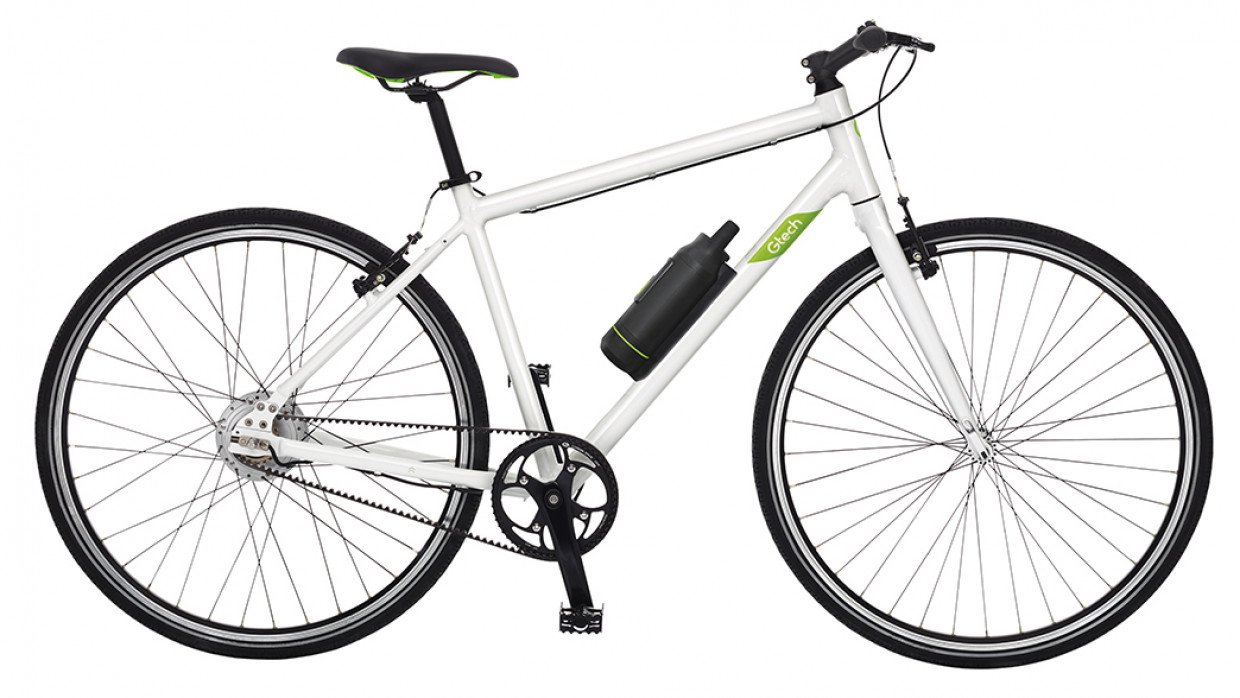
Toyota Highlander is one of the largest hybrid SUVs in Toyota's global lineup. It was unveiled in North America last year, and it will likely make its debut in Europe in the coming years. The new model will be available with a fully hybrid powertrain, and will compete against the Explorer and XC90 of Ford.
You can choose from four trim levels for the SUV. The Highlander offers a stylish combination of luxury and hybrid styling. It is spacious, well-designed and packed with comfort features. It also includes a range safety equipment and a JBL stereo system. The fourth generation hybrid selfcharging system is emission-free and offers up to 80 percent fuel savings.
This hybrid has rear-mounted, electric motors that direct torque towards the right and left rear wheels. This hybrid SUV's powertrain is the most efficient and smoothest. The vehicle can cruise at up to 78mph on an electric motor. The battery can store enough energy to provide an average of 38 miles of all-electric range.

The SUV comes in both all-wheel and rear-wheel drive versions. It can carry seven people, and up to eight. The interior is spacious with ample space for cargo. The panoramic roof option is also available. It also features a power tailgate that is powered via an electric unit mounted to the rear.
The cabin is equipped with a 12.3-inch touchscreen monitor. It is housed in a console at the center and offers media functions as well navigation. It can connect to the internet and will provide real-time traffic updates. It comes with a JBL premium sound system and a power moonroof. To maximize storage space, the second- and third rows of seats can be folded down. The seats are heated/ventilated.
Its engine is a 2.5-liter Inline-four with 243 horsepower. This powertrain can deliver a combined mileage rate of 28 MPG on the highway and a maximum towing weight of 2 tons. The engine comes with an electronic continuously variable transmission. The Highlander will be available with a standard AWD-i intelligent all-wheel drive. The battery pack is 1.49 kWh. The SUV can reach 60 miles per hour in just 5.0 seconds.
Toyota Smart Connect+, which features a 12.3 inch touchscreen, has been fitted to the Highlander. It features real-time traffic updates as well as over-the–air updates and cloud-based navigator. Despite its advanced technology, it is still quiet and easy to drive in city traffic.

There is also a Limited version of the SUV that adds heated front seats, Bird's Eye View cameras, and a 10-inch display at the head. Star Gaze fixed roof with power sunshades is available. However, the third row seats feel a bit cramped.
The Lexus RX is a hybrid SUV that offers a wide range of luxury features. This high-end model has a 3.5 liter V6 gas engine as well as a powerful, electric motor. The vehicle's design is comfortable. It has a number of luxury features such as a three-person bench seat in second row and a captain's seats in third row. It is also EPA-rated to achieve 29 mpg highway and 30 mpg city traffic.
FAQ
To work as an automotive mechanic, do I need a degree? Do I have to study part-time?
While a degree is not required, it does help. Employers prefer candidates who have completed a full degree. It shows you are dedicated and have worked hard to achieve your goals.
You can still study while working, however. Some universities allow students to complete coursework over the summer holidays and finish their studies later in the year. Others let students take classes part-time throughout the year.
What qualifications do I need to be a truck mechanic?
You don't have formal qualifications for this role, but you are very experienced working on trucks and engines. Your experience is invaluable as you know how to diagnose problems quickly and efficiently.
You also have an excellent knowledge of diesel technology which will help you to understand what parts are needed to repair our vehicles.
What is the best career for an automotive mechanic?
If you are determined to excel, the automotive industry offers many opportunities. The best way to succeed in this field is by working hard and learning as much as possible from others.
Communication skills are important as customers and coworkers will often be your main focus. It is important that you are willing to travel, work long hours and be able to commute.
Take classes at community colleges or universities if you're interested to work in automotive. Many schools offer programs specific to students interested in sales, auto repair, or customer service.
If you decide to pursue a degree, you should study mechanical engineering. You can earn a bachelor's in as little four years.
Many companies will also hire graduates right out of school. So, it is wise to begin searching for employment while you are still able to study part time.
Once you've completed your education, you'll probably need to complete some form of training before being able to take up a position as an automotive technician.
This means that you will need to pass tests such as the Automotive Excellence (ASE) certification exam. This test covers topics such engine maintenance as brakes, steering, suspension, etc.
After passing the ASE exam, you can apply for a National Institute for Automotive Service Excellence license.
A license allows you to perform repairs on vehicles owned by private individuals. Based on the services rendered, you will receive compensation.
Not all states require licensing. However, licensing is required for anyone who plans to work outside the home state.
Some states do not issue licenses until they have received a certain amount or training. If this is you, you may need another option.
Is it worthwhile to become a mechanic?
The answer to this question depends on what you want from life if you are looking for money, then yes, but if you're looking for meaning and purpose, then no.
If you don’t have any mechanical skills, it’s pointless to get into it. It will just waste your time. It's not going make you millionaire. It's unlikely that you will be famous. It's unlikely that it will change your life.
It would take you years to learn how to do everything correctly. Also, you would need to hire someone else to fix it if it broke down. This is why most people don’t bother. They find something better to do instead.
You can make a lot of money if you are looking to do well. If you are looking for a fulfilling life, however, then stay clear of the mechanics' industry.
Statistics
- The U.S. Bureau of Labor Statistics (BLS) reports that the job outlook for automotive service technicians and mechanics is expected to decline by 4% from 2019 to 2029. (indeed.com)
- 52% of Mechanics in the United States think their salaries are enough for the cost of living in their area. (indeed.com)
- According to the BLS, the median annual salary for automotive service technicians and mechanics in the United States was $44,050 in May 2020. (uti.edu)
External Links
How To
How to correctly diagnose your vehicle for repairs
To determine if your car needs repairs, you should first look at the symptoms that your car presents. Follow these steps to properly diagnose your vehicle.
-
Check engine lights. Inspect the dashboard light indicators. These include the engine lights, the oil pressure gauge and the battery light indicators. The RPM gauge and coolant temperature gauge should also be checked. You may have a problem with your vehicle if any of the indicators are flashing for more than a few days.
-
Check the treads of your tires. If the tires are worn out, they could cause problems with handling and braking. It is also important to inspect the wheel treads. You should ensure that they are clean and smooth. You can do this by taking off the wheels. You can check the tread wear with a flashlight.
-
You should always monitor the level brake fluid. You should always keep track of the amount of brake fluid in your vehicle. This will ensure your brakes function properly. Low brake fluid levels can cause brake failure when you apply pressure.
-
The suspension system should be tested. The suspension system in vehicles absorbs vibrations and shocks. It allows for better control, smooth acceleration, and deceleration. Your vehicle might feel wobbly, or shake uncontrollably if it has a bad suspension. To determine whether your vehicle may have a suspension issue, you can try to put weight on the rear or front axle and watch the movement.
-
Examine the steering column. The steering column is used to link the steering wheel with the rest of vehicle's components. Steering columns can be damaged by accidents. You should replace your steering column if it feels loose or unstable.
-
Observe the exhaust pipe. The exhaust pipes are responsible for moving gases from the combustion chamber into the atmosphere. If the exhaust pipe is damaged or leaks, harmful fumes can enter your cabin. Additionally, your tailpipe should be fixed immediately if it is bent.
-
Look under the hood. To check for unusualities, look under the hood. You could have fluids leaking from the engine. You should also contact a professional technician if there is an unusual odor coming from the engine compartment.
-
You should inspect your air filter. Your vehicle's air filter collects dust and debris from the outside environment. A dirty air filter causes your vehicle to run poorly. Replace your air filter regularly.
-
Check the fan belt. Your vehicle's fanbel is what connects the engine and the transmission. If it breaks, the engine won't turn over. Replacing the belt is simple. All you need to replace the belt is a screwdriver with pliers.
-
Make sure you inspect the radiator hoses and hoses. The radiatorhose carries water from your radiator to the engine. It can crack or become damaged and leak hot liquid onto an engine. To repair the leaky hose, all you need is a pair if needle-nosepliers.
-
Be sure to inspect your windshield wipers. Windshield wipers work by using electricity to remove rain and snow. If they stop working, streaks could be left on your glass. Simply change the washer oil to fix the problem.
-
Verify the condition of your battery cables. The battery cables provide power for the electrical systems in your car. Make sure you disconnect the negative cable before replacing batteries. Failure to do so can damage your alternator.
-
Make sure your headlights are working properly. Headlights are used to illuminate the road ahead. They can make it difficult to see if they stop working. You can check the bulbs to make sure they aren't burned out.
-
Be sure to check the lights. The lights are there to warn other drivers if they approach you at night. You could be distracted and cause an accident if one does not work.
-
Inspect your brakes. Before you collide with another vehicle, brakes will slow down the car. You could lose control of the car and cause a crash if they don't work properly.
-
Check the oil regularly. Keep your engine lubricated with oil. It helps keep metal parts from getting too worn down. It is recommended that you change your oil at least once per month.